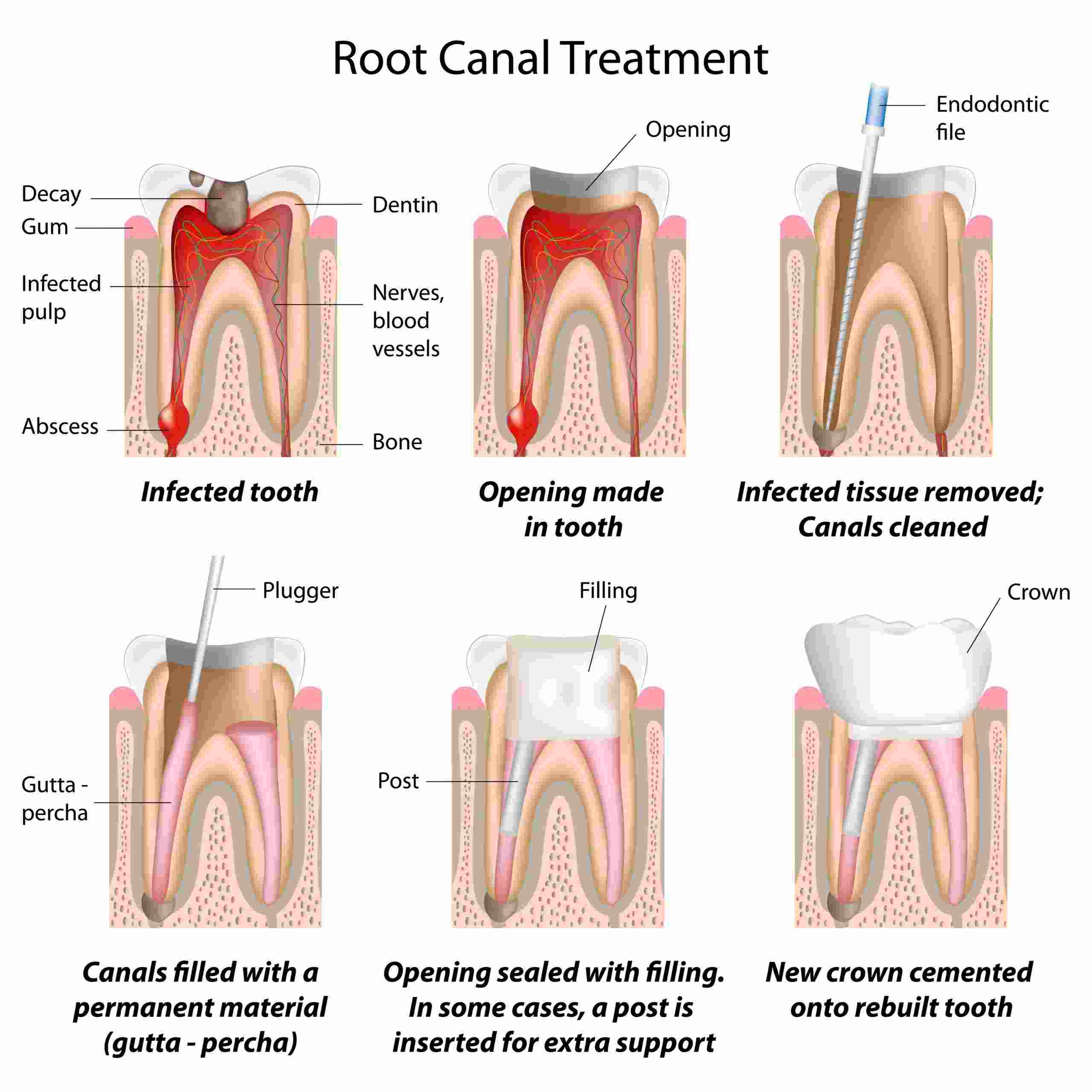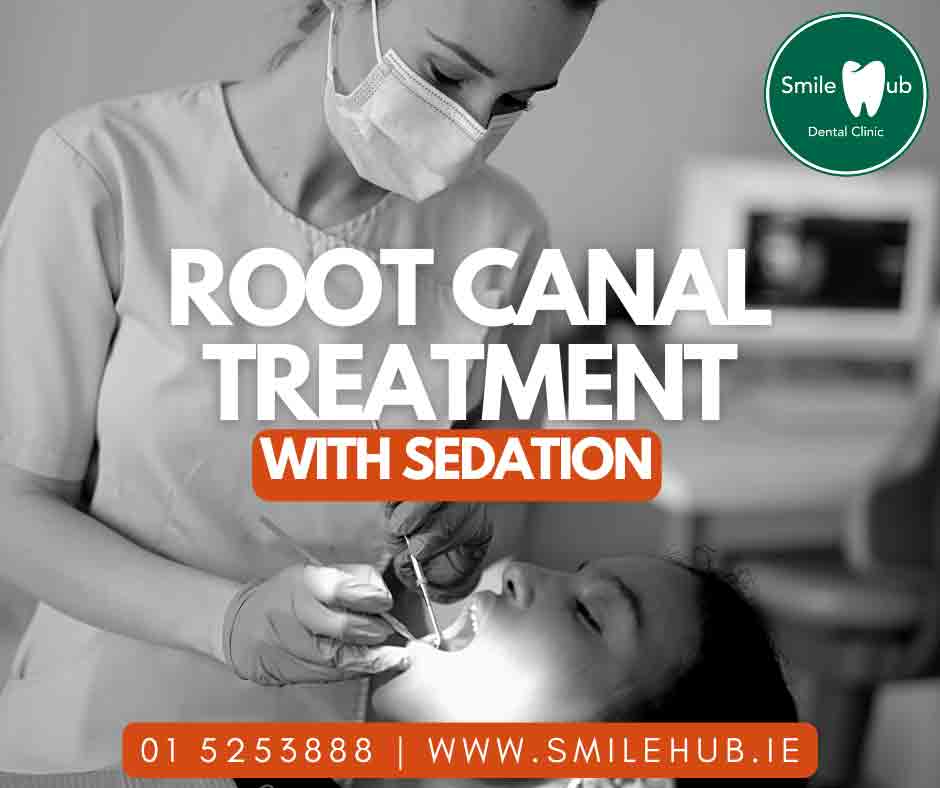Root canal treatment can be performed on most teeth however sometimes if root canals are inaccessible or severely fractured the tooth cannot be saved with endodontics. If a tooth does not have sufficient bony support or if the tooth cannot be adequately restored then root canal treatment is inadvisable. Endodontics are constantly advancing and here at Smile Hub Dental Clinic all of our dentists stay up-to-date and regularly attend advanced training in providing root canal treatments using the latest techniques so that our patients can enjoy the highest quality of dental care in Ireland. In cases where root canal treatment is ineffective, endodontic surgery may be a suitable treatment option that your dentist in Smile Hub Dental Clinic will discuss with you.
Root canal treatment or endodontic treatment involves treating disease of the dental nerve. This nerve is located within the canals in the tooth’s roots. If the nerve is infected or dies it can lead to severe sensitivity, a persistent toothache or a dental abscess. Your tooth may discolour.
Root canal treatment or endodontic treatment can save a tooth that would otherwise need to be extracted. At Smile Hub Dental Clinic in Bayside Medical Centre we provide pain free root canal treatment. If you’re a nervous patient please consider our sedation option which will make your root canal treatment a comfortable and relaxing experience.
During your root canal treatment your root canals will be cleaned and disinfected. At Smile Hub Dental Clinic in North Dublin our highly skilled dentists prepare your root canals so that they can be sealed with a bacteria resistant root canal filling material. Your tooth will then be restored and may remain in function for years. If your tooth has lost considerable tooth structure a crown may be recommended to strengthen your remaining tooth and prevent tooth fracture and subsequent tooth loss. Front teeth usually have a single root however back teeth can have 3-4 roots which considerably increases the dentists work in cleaning out the infected canals. Root canal treatments do not have a 100% success rate as some teeth can have unusual anatomy or bacteria that cannot be fully eradicated.
In some cases, your dentist at Smile Hub Dental Clinic may recommend tooth extraction if root canal treatment cannot be successfully performed on your tooth. In some cases, a tooth is too compromised to enable a predictable restoration to be placed. In these cases, a dental extraction and the provision of a dental implant may have a better long-term outcome for you.
At Smile Hub Dental Clinic, we ensure your comfort during root canal treatment we have invested in the most modern dental technology such as rotary instruments. By us using the latest dental equipment we ensure that your root canal treatment has the greatest chance of success and that you will spend less time in the dental chair. We use digital x-rays and special anaesthetics to ensure that your root canal treatment is pain free. Many of our nervous patients opt for sedation during their root canal treatment to ensure that their experience is relaxed and comfortable. At Smile Hub Dental Clinic our dentists have specifically undergone extensive post-graduate training in root canal treatment to ensure that your root canal treatment/ endodontic treatment will have the highest success rates and best outcome possible.
Please Call us today or book online to schedule your root canal treatment in Smile Hub Dental Clinic, Sutton, Dublin 13.


























